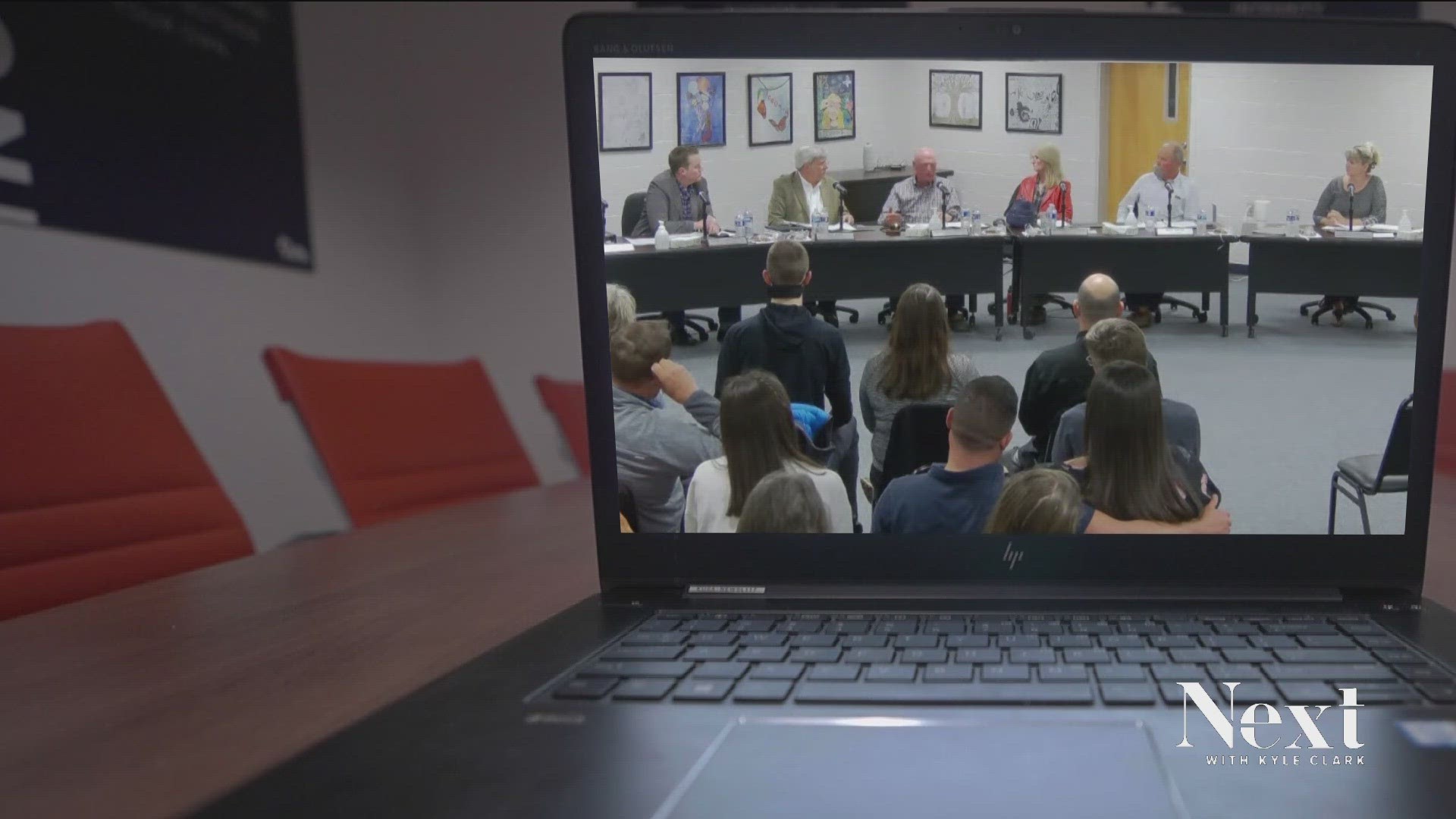WOODLAND PARK, Colo. — A bill to help students get access to mental health help might not seem especially controversial, but some districts in Colorado say it is.
Before a new law was signed Monday giving schools the option to participate in a program giving students mental health screenings, a handful of rural, conservative school districts banded together to say they would opt out.
House Bill 1003 creates a school mental health assessment. Students from 6th to 12th grade will be screened and referred to a therapist if needed. The bill was signed into law on Monday by Democratic Governor Jared Polis.
"More children in need of services will be able to get those services," Polis said at the bill signing.
When they refused to participate, all the school districts said the exact same thing, word for word.
"The state is not in charge of the mental health of your children, my kids," said Woodland Park School Board President David Rusterholtz at a meeting on April 12.
The bill’s sponsor, Democratic representative Dafna Michaelson Jenet, said parents can opt out of the screenings for their kids. But, if a student is above the age of 12, they can opt back in without their parent’s approval.
"If they’re going to confide in a therapist and then that therapist calls mom and dad at the end of the night, you’re never going to have another therapy session," Michaelson Jenet said.
Michaelson Jenet says the screenings are all confidential and protected by HIPPA. She likened them to an eye screening that some kids take at school to see if they need glasses.
The program will expand upon the "I Matter" program that was started in 2021 to give students in Colorado free access to mental health care and therapists. It started after the pandemic hit and has already served more than 8,500 kids, according to Michaelson Jenet. The screenings will help refer students to the services offered by the I Matter program.
"How can we find them and get them care as swiftly as possible?" Michaelson Jenet said at the bill signing. "The I Matter Program is proof of that. We have served 8,500 kids in Colorado so far with the I Matter Program. We will serve more kids through that program via this bill."
The goal seems simple: get more students more help. Getting everybody to agree on that is more difficult.
Board members in Woodland Park and at least one other small, rural district read a resolution opposing the bill in the months leading up to the signing.
"The Supreme Court has repeatedly held the right of parents to control and direct the education and upbringing of their own child to be a fundamental right protected under the Fourteenth Amendment," Rusterholtz said, reading the resolution.
It sounds original, but it’s not.
Word for word, Garfield Re-2 School Board Director Tony May read the exact same resolution at their meeting on May 10.
"The Supreme Court has repeatedly held the right of parents to control and direct the education and upbringing of their own child to be a fundamental right protected under the Fourteenth Amendment," May read in-part.
May told 9NEWS on the phone today that he didn’t write it, he just read it. He said he didn’t know who wrote the resolution shared from school board to school board opposing the bill that today became law.
So the big question is, who wrote the resolution shared and copied by all these school districts?
We don’t know that yet, though we might have some clues. The Superintendent in Woodland Park is Ken Witt. He also runs a group called Education ReEnvisioned, which posted the exact resolution on their website. It's unclear if they wrote it or got it from an outside group and then shared it with conservative school boards around the state telling them to oppose the bill.
Witt did not reply to a call and email from 9NEWS Monday afternoon.
"I absolutely believe that where they have already decided that they are not going to take part in this program, the people who suffer are the children," Michaelson Jenet said.
At least these two school boards that we know of, Garfield Re-2 and Woodland Park, have read the resolution at school board meetings. If the board's vote to pass the resolution, they will opt out of the program. That means students in those districts won’t get access to mental health resources at school. However, they still can apply online to get access to therapy help.
"I think all of that is nonsense," Michaelson Jenet said of the controversy. "We are trying to get care for our kids who are screaming out for the care that they need. We are not providing it right now. Now we will be."
SUGGESTED VIDEOS: Next with Kyle Clark

